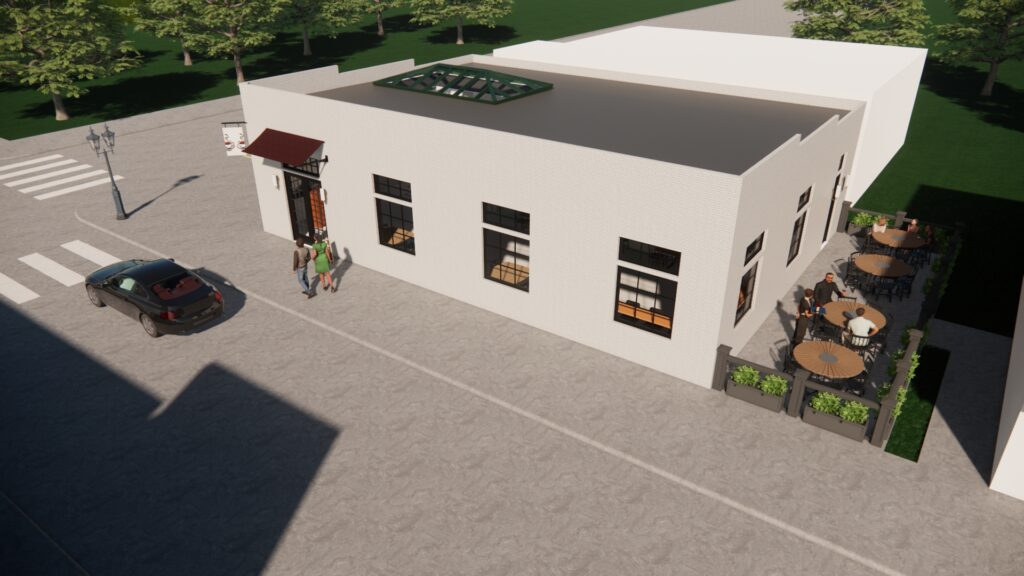Alianza hopes to take steps forward in 2011

Like any fledgling organization, Alianza must walk before it can run. That walk is about to pick up the pace.
Alianza: Latino Business Association last spring broke away as an affiliate of the Greater Des Moines Partnership, which founded it in 2004, and developed into its own independent organization, whose name will be changed in the spring to Alianza: Latino Chamber of Commerce of Greater Des Moines.
Now, Alianza is starting a new two-pronged approach – to grow and develop leadership – led by President Micah Kiel.
“When we look at the Latino community, we really want to help in a maturation of the community, specifically the business community,” Kiel said. “When we look at maturation, we look at: One, is the business community growing and thriving into more sophistication, more purchasing power, greater presence? Two, we look to see if there is a natural leadership developing.”
The growth part of the equation starts on Jan. 1, when Alianza will begin a membership drive. Alianza members will target Latino businesses with on-site visits.
At the same time, Kiel plans to get Latino business leaders together in order to assemble a report to be published by the end of the year.
“That could go from local issues such as regulatory items to state legislature issues or industry issues,” Kiel said. “There’s no natural leaders that have come to fruition yet, there’s no civic leaders in the Latino community. The goal, and what should happen naturally by growing businesses, is to see an actual development of leadership over a period of years.
“Alianza is trying to play an institutional role that a chamber of commerce plays, to try to help those things happen.”
Developing a presence
The more immediate of the two goals will be getting businesses involved in the organization.
Some of the 45 official members already see the benefit, such as Muñoz Productions Inc. Owned by founder David Muñoz, Muñoz Productions produces videos for businesses, government agencies and nonprofit organizations, often with an eye toward how the video will be viewed by a diverse audience.
As a Latino business owner himself, Muñoz decided early in Alianza’s existence that it was an organization worthy of support.
“I think it’s important. I think economic clout really makes a difference,” Muñoz said. “Sometimes I don’t think the clout of the Latino community is recognized as well as it could be.”
That’s not to say things haven’t improved since he moved to Des Moines in 1983.
“You didn’t used to see Latino business owners or Latino executives in 1983,” he said. “They weren’t very high-profile, anyway.”
Increasing Alianza’s membership, Kiel said, is beneficial for both Latino and non-Latino businesses, both of which are allowed to join the organization. Being part of Alianza allows Latino businesses to promote their products and services to a larger market of non-Latino businesses, while allowing non-Latino businesses to do the same thing in return, he said.
Getting Latino businesses involved can actually be more of a struggle than getting non-Latino businesses involved, Kiel said, in part because they just aren’t used to it.
“Research has shown us that it’s actually most difficult to get member businesses from (a Latino) background,” he said. “Immigrant business owners haven’t necessarily come from a place where the chamber of commerce plays a pre-eminent role in the community.”
Furthermore, many haven’t become a part of their local chambers in Des Moines because of language barriers.
“What we have to do … is to get their buy-in to become members, to speak positively and lead other business people who are watching their efforts into becoming members to work collectively together,” Kiel said.
From leadership to advocacy
Alianza’s broader mission for the next year is to develop advocacy from the Latino business community, eventually leading to what Kiel called “an actual politico.”
To help in that process, Kiel wants to get business leaders together in a formal way to poll them and find out what visions they share and how to move forward collectively.
“I don’t know if this has occurred before, to be honest, but it’s not occurring right now,” he said.
A recent example of what Kiel would like to see more of occurred in October when he helped get Coopera Consulting CEO Warren Morrow and Pharmserv Solutions LLC President Felix Gallagher into a meeting with Iowa Congressman Leonard Boswell and New York Congresswoman Nydia Velazquez.
The two Des Moines businessmen talked about issues within their industries as well as immigration reform and the DREAM Act. Kiel anticipates both could help develop further advocacy in the future.
“The leadership is there; I think it needs to increase in clout,” Morrow said. “I think it needs to be better networked and better organized to be a much stronger link to the mainstream community. It’s that point that Alianza can do the most with, is that connection to the mainstream community.”
Growth in leadership, Morrow and Kiel cautioned, will take time, as will getting the Latino business community further recognized. That doesn’t make it any less important to pick up the pace in 2011.
“People still think that the Hispanic market has nothing to do with them,” Morrow said. “I think perception is key. There’s the need, to the extent possible, to catalyze the conversations that demonstrate the power and success stories of the Hispanic business community.”








